Courses
Spring 2026 Courses
Please see the Registrar's site for the latest information on our course offerings. For more detailed information about next semester courses click here. Please see our section in the University Bulletin for a full list of classes offered by the program
For questions about the Major/minor in Hispanic Studies, please reach out to our Undergraduate Advising Head, Prof. Fernando Rosenberg (ferosen@brandeis.edu)
Course Listings in Hispanic Studies
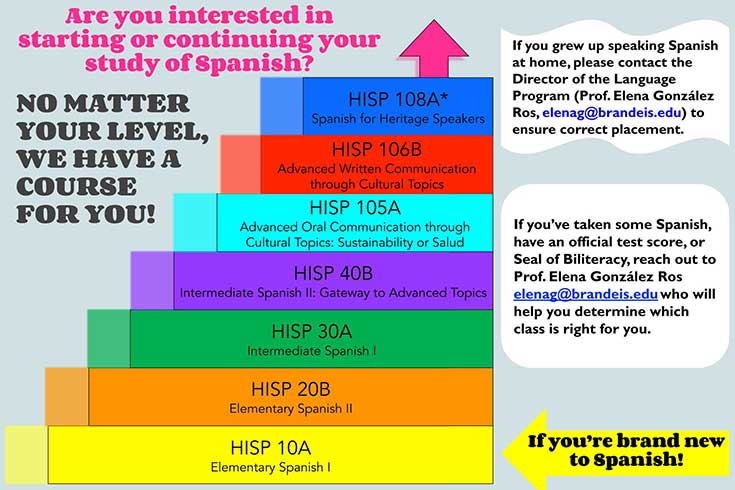
Are you interested in starting or continuing your study of Spanish? No matter your level, we have a course for you!
- if you’re brand new to Spanish
- if you’ve taken some Spanish, have an official test score, or Seal of Biliteracy
- if you grew up speaking Spanish at home
For more information about HISP 10-108 placement/enrollment, please see our Language Programs Placement page. If you have any questions, please contact Prof. González Ros.
Prerequisite: Permission required (please see instructions on our Language Programs Placement page).
For students who have had no previous study of Spanish. An introduction to the Spanish language and culture, this course focuses on the acquisition of basic communication skills in Spanish and cultural awareness. Students will actively speak, write, listen, and read in the target language. A variety of media and texts relating to authentic familiar topics will be used. Active participation is essential.
Prerequisite: A grade of C- or higher in HISP 10a or the equivalent. Permission required (please see instructions on our Language Programs Placement page).
For students with some previous study of Spanish. Students will continue the development of all language skills (speaking, reading, listening, writing, and culture) using a variety of media and texts relating to authentic familiar topics. The focus of the class is to communicate effectively and to learn more about the cultures of the Spanish–speaking world. Active participation is essential.
Prerequisite: A grade of C- or higher in HISP 20b or the equivalent. Permission required (please see instructions on our Language Programs Placement page).
Students in HISP 30A will bring their proficiency up to an intermediate level. Prepares students to communicate on a variety of topics which are familiar or of personal interest. All language skills will be practiced with a special emphasis on interpersonal communication and cultural competence.
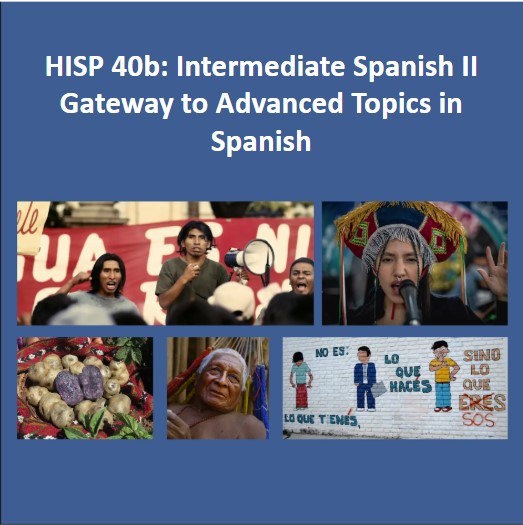
Prerequisite: HISP 30b. Permission required (please see instructions on our Language Programs Placement page).
Participants will expand their language skills in Spanish while deepening their understanding of Hispanic cultures. Students will explore how their identity and those of others is expressed through language, images, and cultural practices.
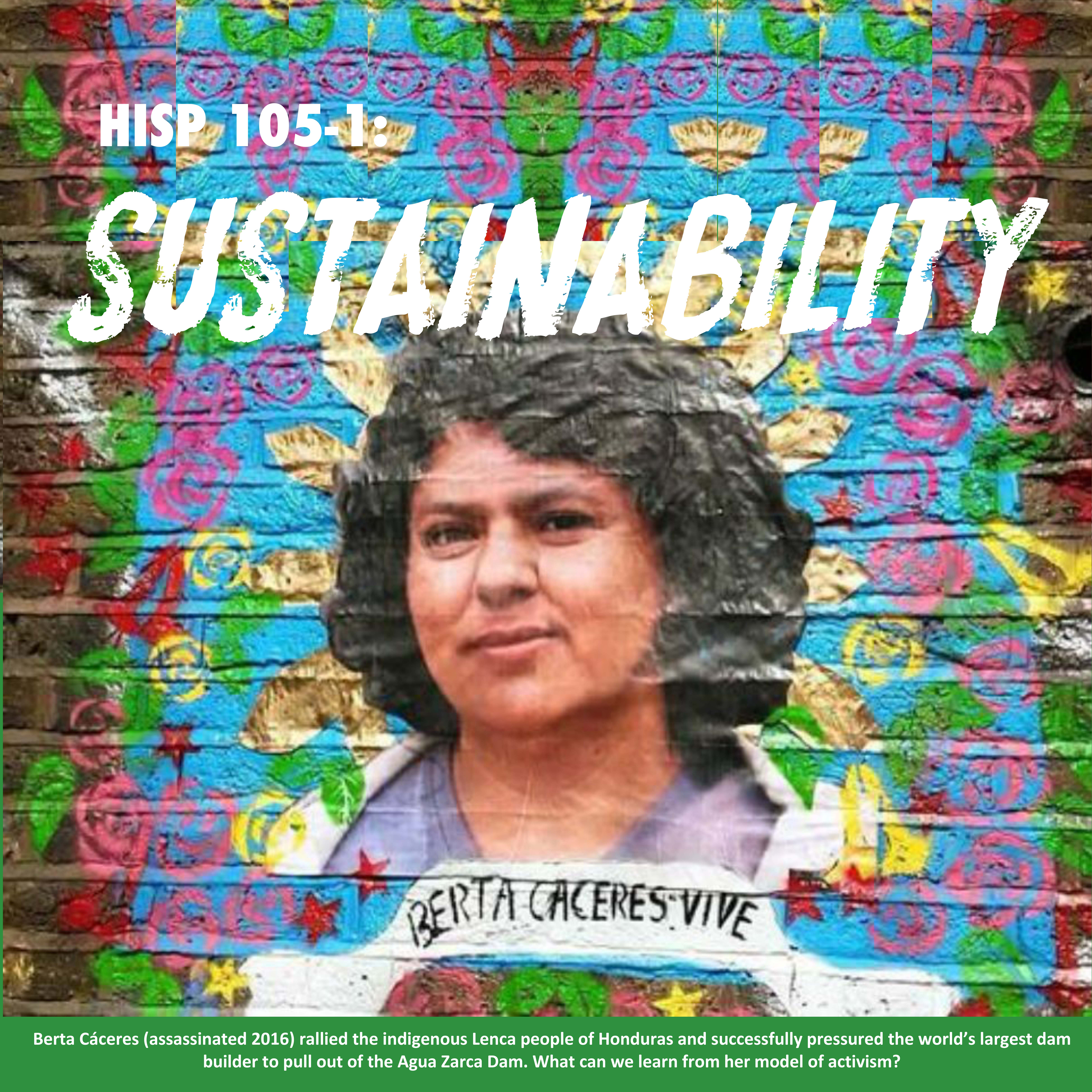
Prerequisite: HISP 40b or the equivalent. Permission required (please see instructions on our Language Programs Placement page).
A content-based language course in which you will develop your ability to present information, persuade, and debate in Spanish. Throughout the semester, you will interact with a variety of authentic texts in order to acquire the sociolinguistic tools that you need to communicate effectively in different contexts. Each unit incorporates active learning strategies, cross-cultural comparisons, and social justice themes. Practice tasks and formal assessments will mirror real-world situations where both linguistic and intercultural competence will be evaluated.
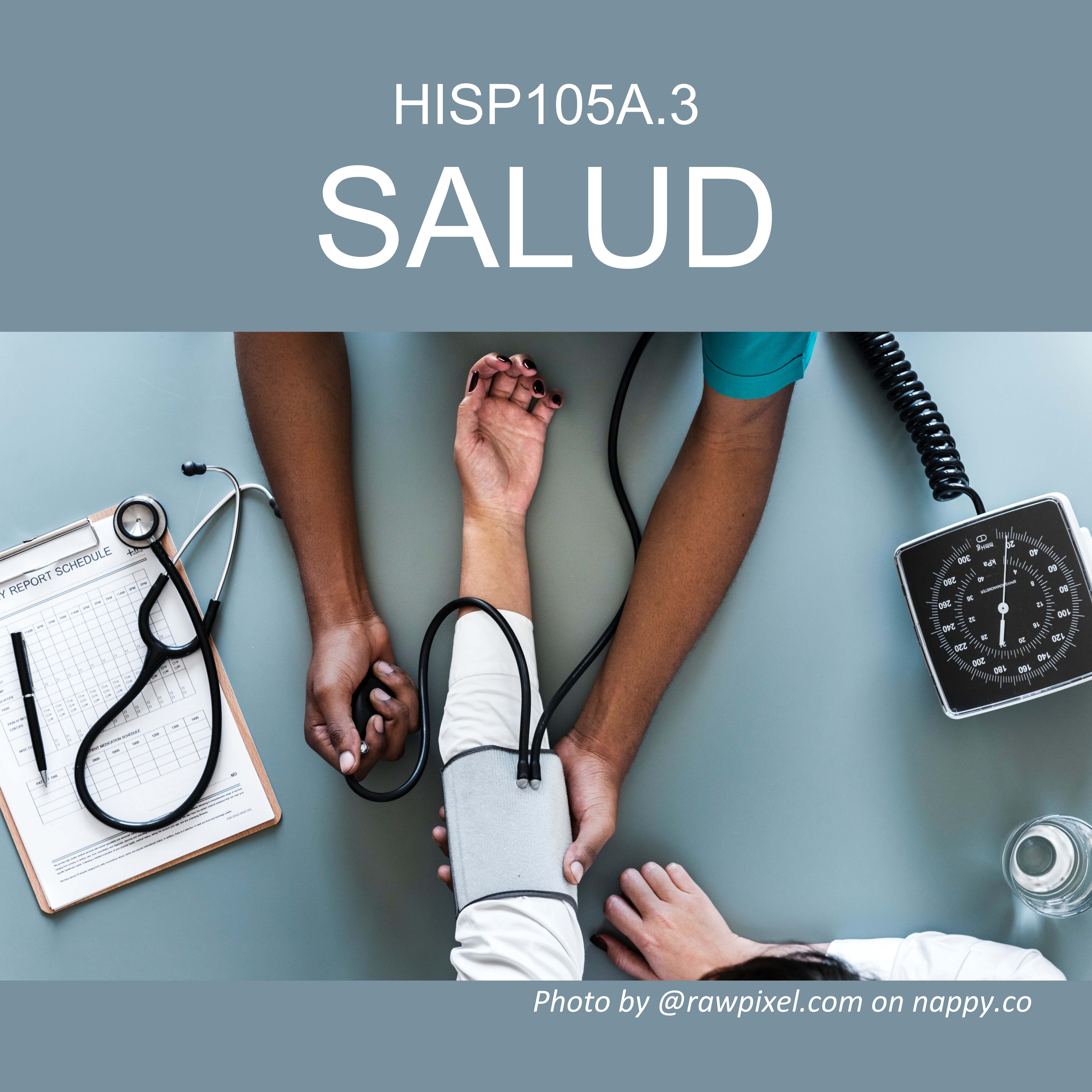
Prerequisite: HISP 40b or the equivalent. Permission required (please see instructions on our Language Programs Placement page).
A content-based language course in which you will develop your ability to present information, persuade, and debate in Spanish. Throughout the semester, you will interact with a variety of authentic texts in order to acquire the sociolinguistic tools that you need to communicate effectively in different contexts. Each unit incorporates active learning strategies, cross-cultural comparisons, and social justice themes. Practice tasks and formal assessments will mirror real-world situations where both linguistic and intercultural competence will be evaluated.
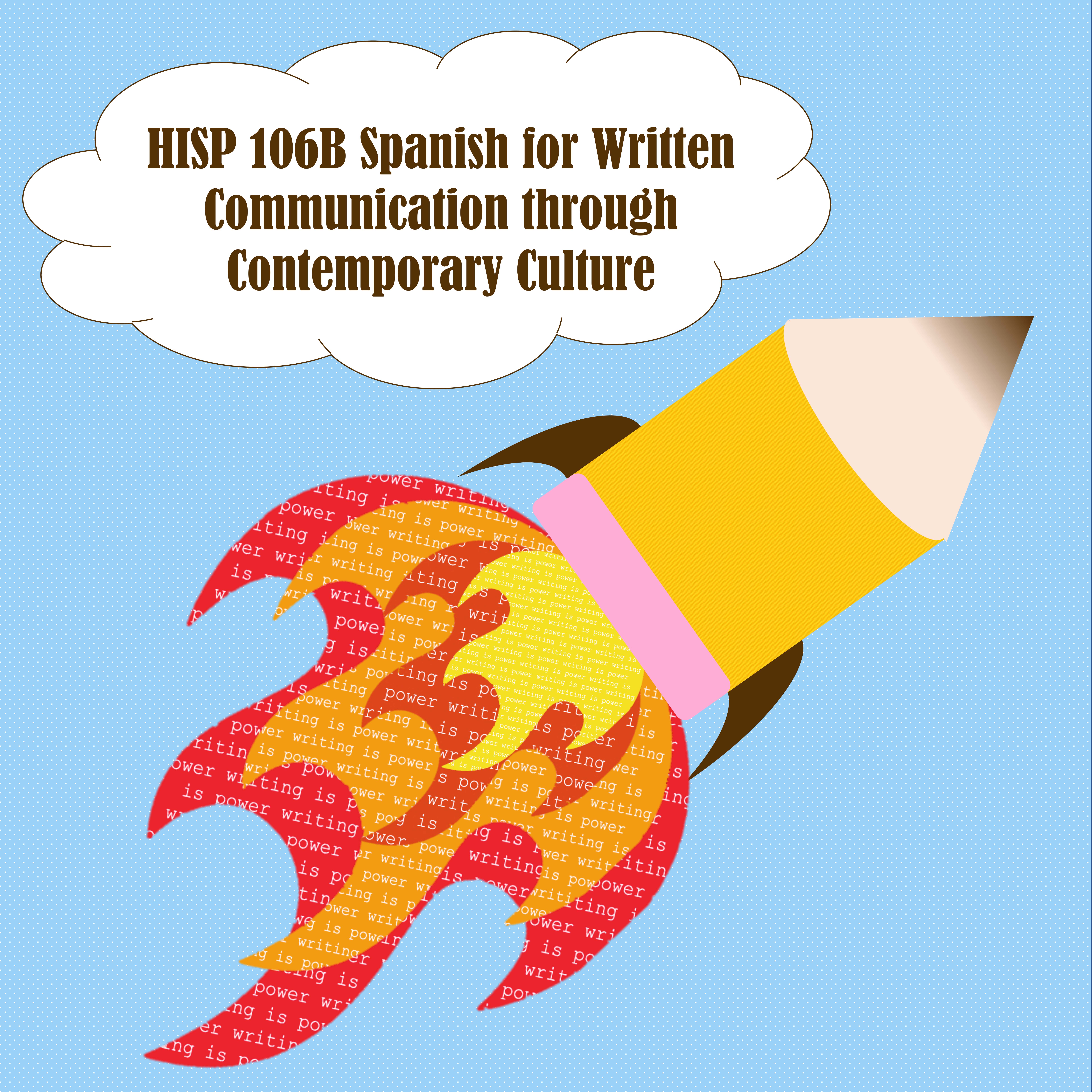
Prerequisite: HISP 105a or the equivalent. Permission required (please see instructions on our Language Programs Placement page). [WI]
Focuses on written communication and the improvement of writing skills, from developing ideas to outlining and editing. Literary selections will introduce the students to the principles of literary analysis and serve as topics for class discussion and writing. Usually offered every semester.
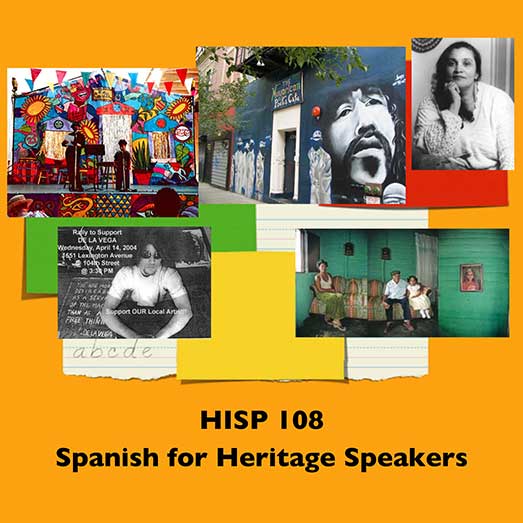
Designed specifically for students who grew up speaking Spanish and who would like to enhance existing language skills while developing higher levels of academic proficiency. Assignments are geared toward developing skills in reading, writing, and critical thinking about U.S. Latino/as and the Spanish-speaking world. Students may use this course to fulfill the foreign language requirement. Usually offered every year.
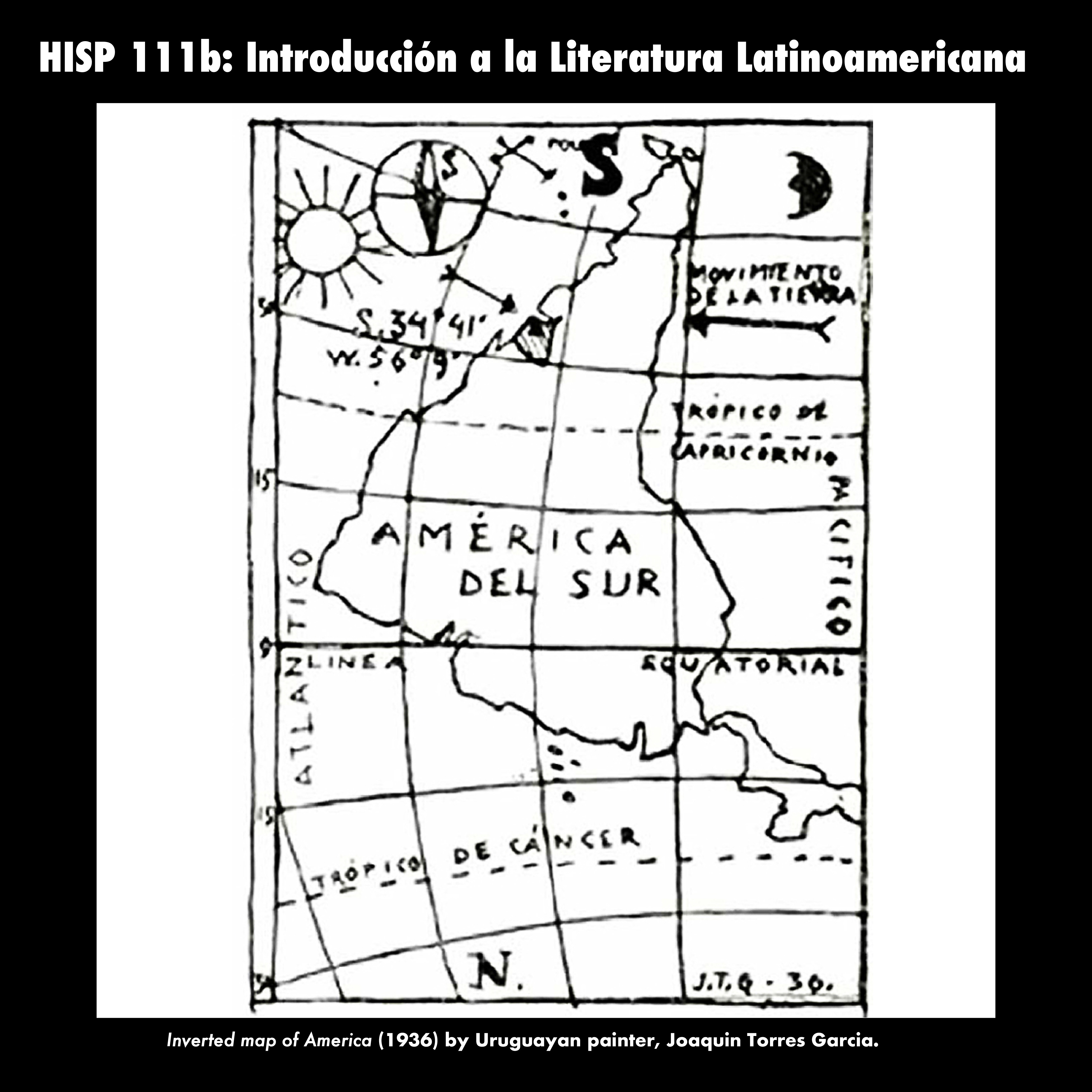
Taught in Spanish. Prerequisite: HISP 106b, or HISP 108a, or permission of instructor. [DJW; Cross-listed with COML, IGS, LACLS, and MUS]
Examines key Latin American texts of different genres (poems, short stories and excerpts from novels, chronicles, comics, screenplays, cyberfiction) and from different time periods from the conquest to modernity. This class places emphasis on problems of cultural definition and identity construction as they are elaborated in literary discourse. Identifying major themes (coloniality and emancipation, modernismo and modernity, indigenismo, hybridity and mestizaje, nationalisms, Pan-Americanism, etc.) we will trace continuities and ruptures throughout Latin American intellectual history.
|
HISP 121b Sexualidades disidentes del sur (ensayo, ficción, cine) HISP 122b Made in las Americas: Stories about Growing up Latinx HISP 124a Nature and Ecology in Latin American Culture HISP 125a Transatlantic Journeys: Cultural Intersections between Spain and Latin America HISP 126a Race and Media in Latin America Hisp 127: Latin American Theater and Performance HISP 142b Literature, Film, and Human Rights in Latin America HISP 158a Latina Feminisms HISP 160a Culture/Media and Social Change in Latin America HISP 163b Narratives of the Borderlands and Border Crossers HISP 164b Studies in Latin American Literature HISP 165b The Storyteller: Short Fiction in Latin America HISP 178b Latinx Futurisms HISP 180a Topics in Twentieth- and Twenty-First Century Spanish Literature and Culture HISP 192b Latin American Global Film HISP 193b Topics in Cinema HISP 196a Topics in Latinx Literature and Culture |